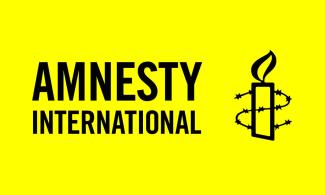
It also called on the authorities to ensure schools are protected from child abductions, which have become increasingly frequent in the decade since the notorious raid by the armed group in northern Nigeria.
Amnesty International, an international non-governmental organisation focused on human rights, has called on the Nigerian authorities to ramp up efforts to ensure the safe release and return of the remaining 82 Chibok school girls abducted by Boko Haram fighters in 2014.
It also called on the authorities to ensure schools are protected from child abductions, which have become increasingly frequent in the decade since the notorious raid by the armed group in northern Nigeria.
Today marks 10 years since 276 girls were abducted from Chibok secondary school in Borno State on April 14, 2014.
According to Amnesty International, since then, it has documented at least 17 cases of mass abductions in which at least 1,700 children were seized from their schools by gunmen and taken into the bush, where, in many cases, they were subjected to serious abuse, including rape.
Isa Sanusi, Director of Amnesty International Nigeria, says, “It is shocking that in the 10 years since the Chibok school abduction, the Nigerian authorities have not learned any lessons or taken effective measures to prevent attacks on schools.
“The number of abductions that have taken place since 2014, including as recently as last month, and the fact that hundreds of children are still in the custody of gunmen, shows the lack of political will by the authorities to address the problem.
“The abduction of children and attacks on schools may amount to war crimes. It is the duty of the Nigerian authorities to end these attacks and bring the suspected perpetrators to justice through fair trials and ensure access of victims to justice and effective remedies.
“A decade is enough time for the Nigerian authorities to find a solution to this problem, but so far, the reality shows the government has neither the will nor the commitment to end these attacks on children and their schools.”
The Safe Schools Initiative to improve security around schools was launched in the aftermath of the Chibok abductions.
However, Amnesty International notes that its implementation had been bogged down by bureaucratic roadblocks and allegations of corruption.
“As a result, many northern states have closed hundreds of schools indefinitely, disrupting the education of thousands of children,” it says.
Amnesty International says its investigations reveal that the state of education in Chibok and its surrounding communities, is still being impacted by the 2014 abductions.
It says, “The Borno state government rebuilt the Government Girls Secondary School Chibok, which was completely burnt down by Boko Haram in 2014, and set up day secondary schools and a technical school in Chibok.
“However, academic activities in the schools remain minimal because parents are still skeptical of sending their children to school, for fear of being abducted by Boko Haram.”